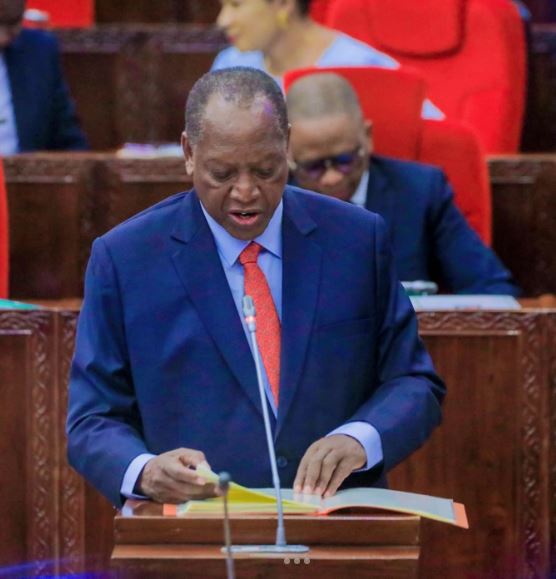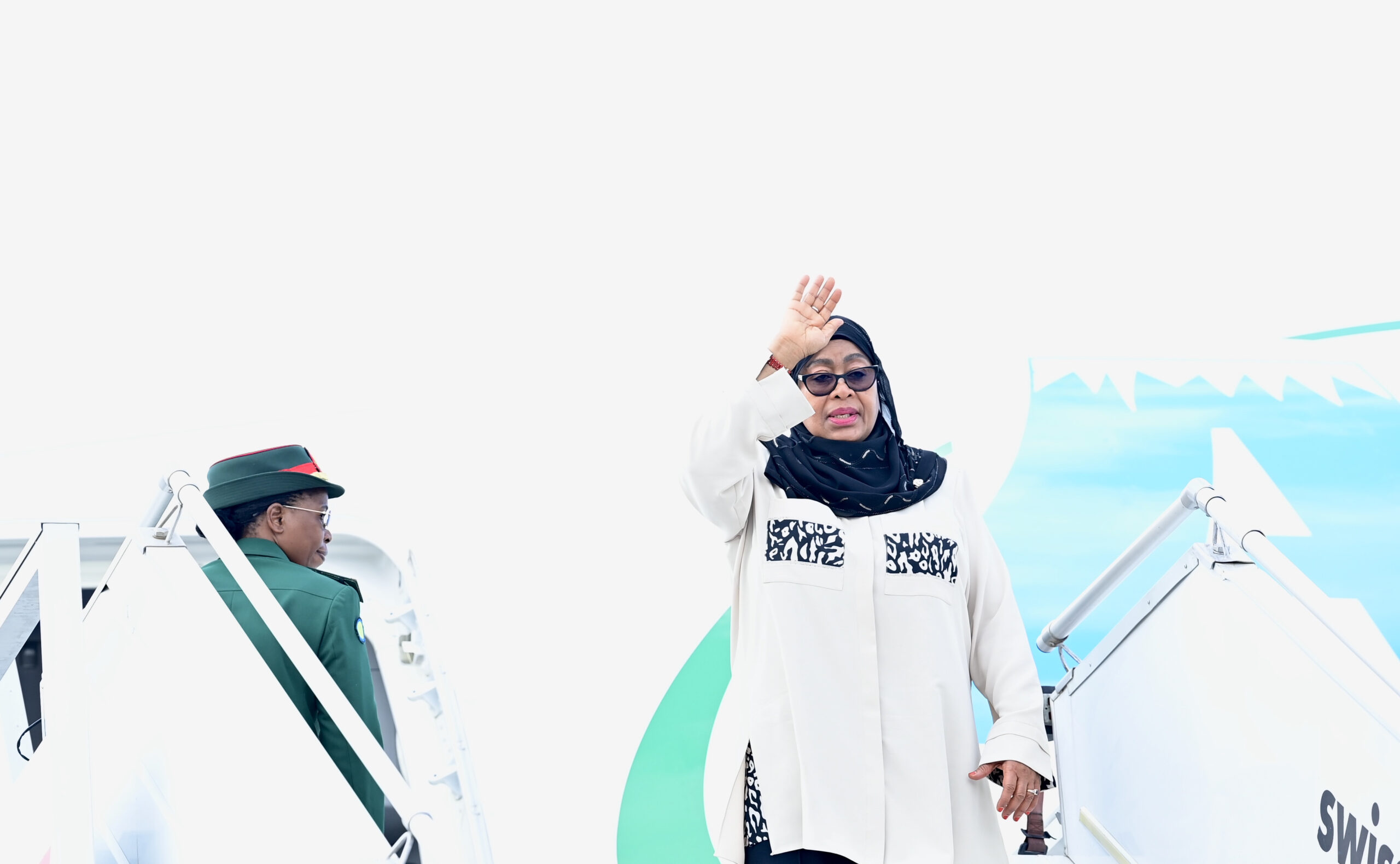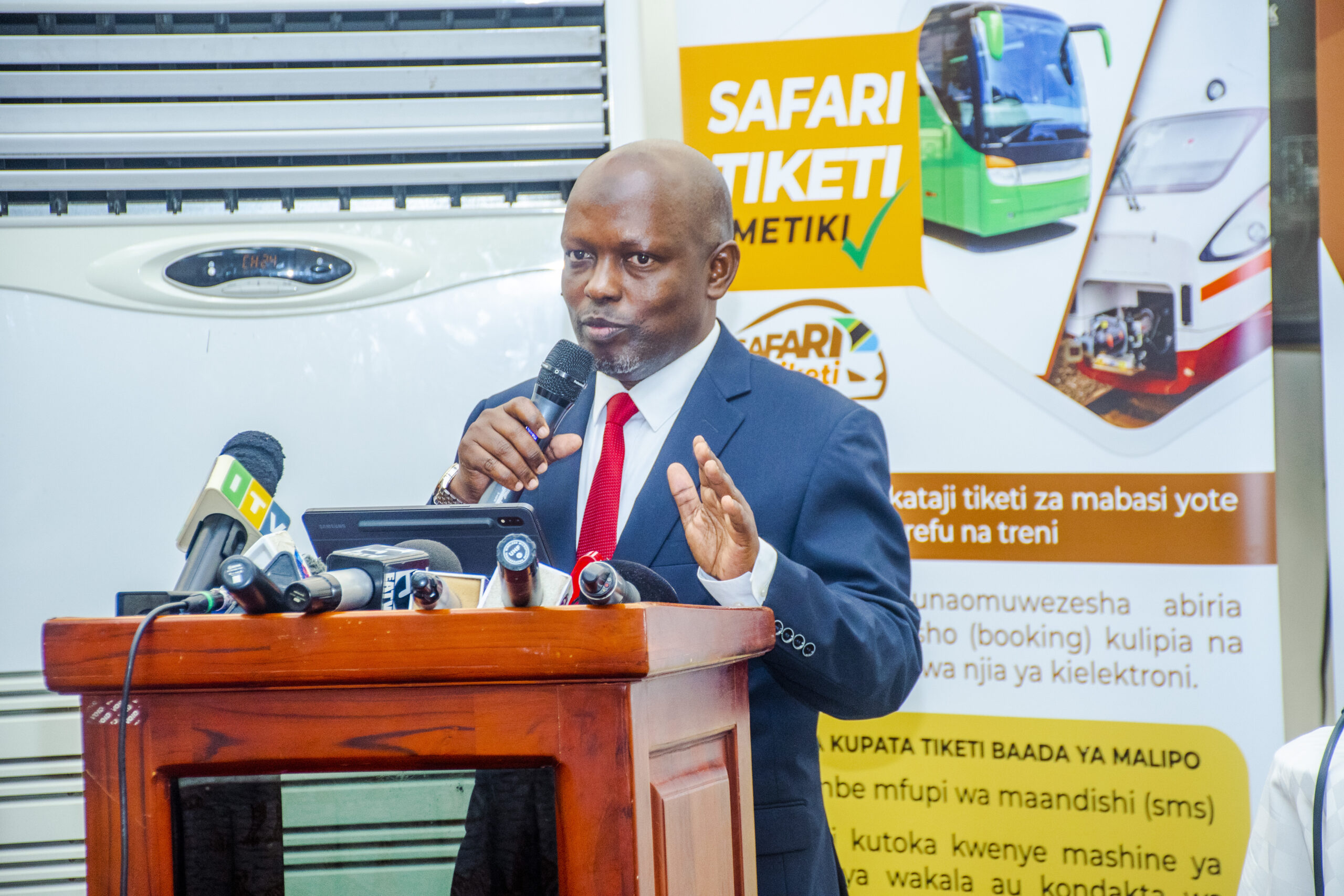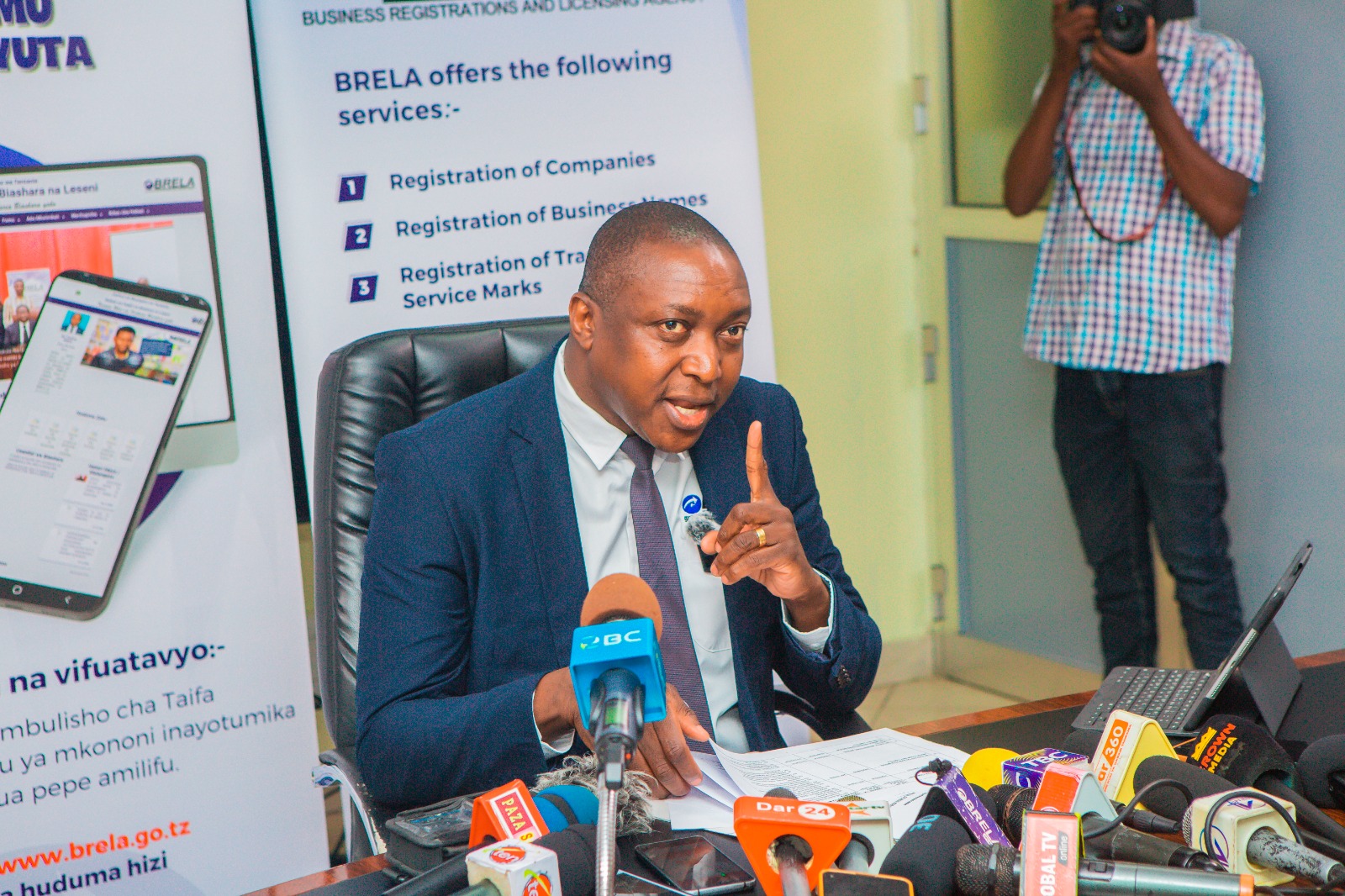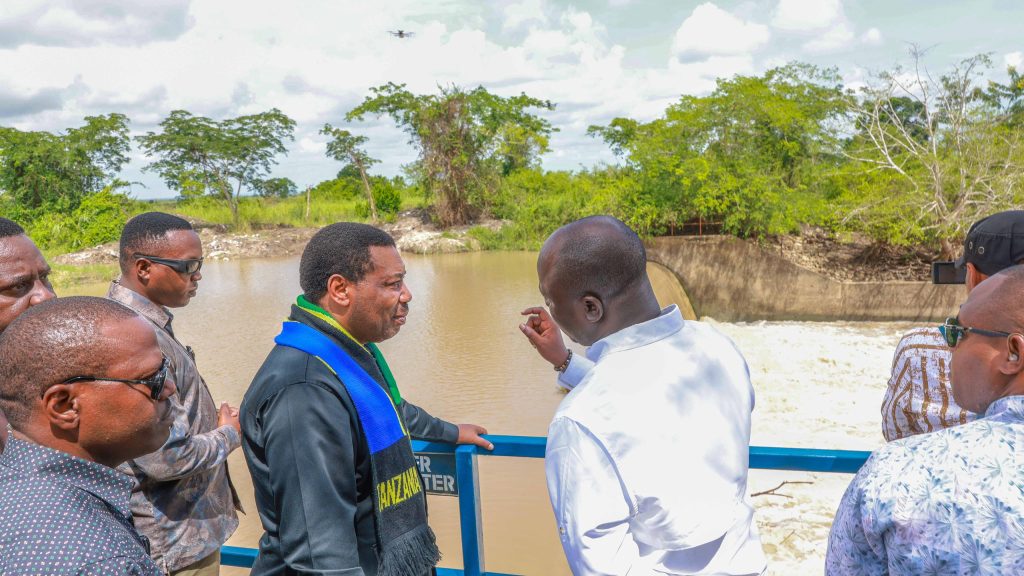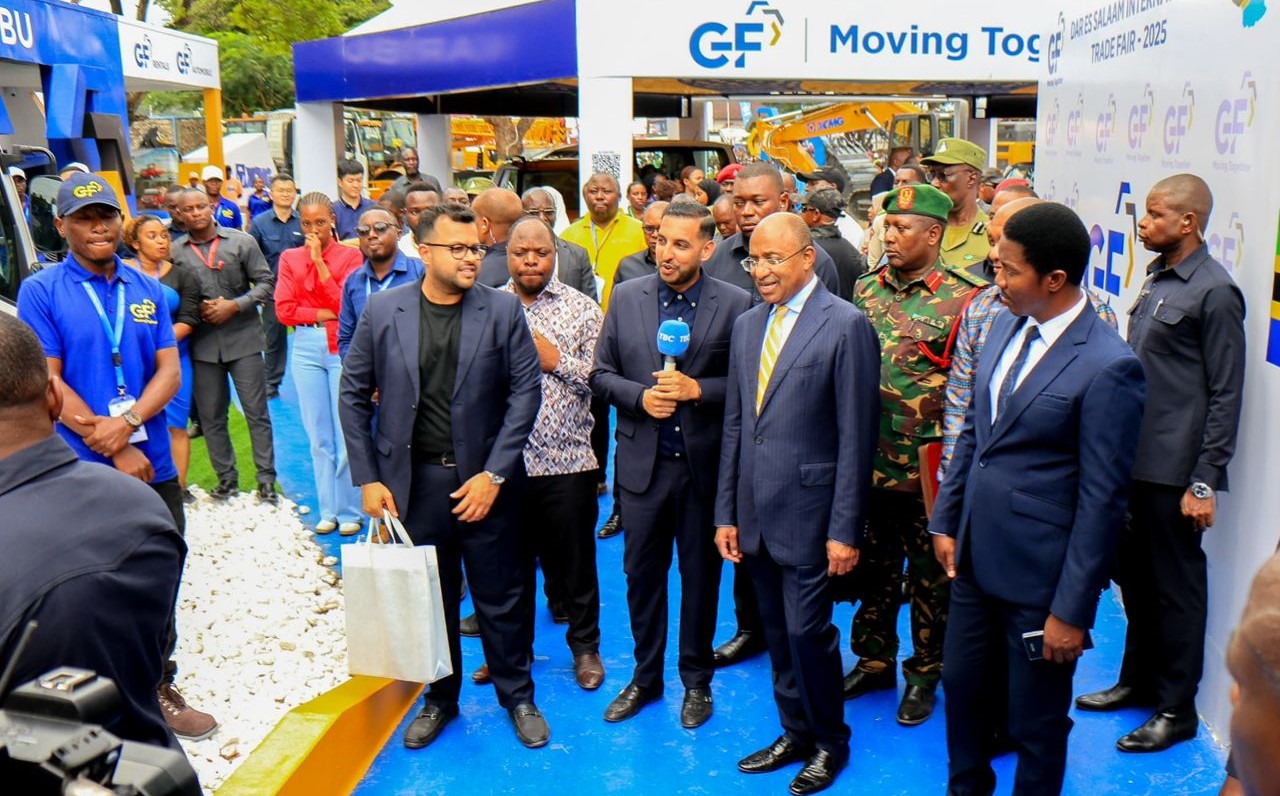Dodoma. The Ministry of Information, Culture, Arts and Sports has requested Parliament to approve a total budget of Sh519.6 billion for the 2025/26 financial year to finance various projects and administrative functions under its purview.
Presenting the budget estimates in Dodoma on 7 May 2025, the Minister for Information, Culture, Arts and Sports, Prof Palamagamba Kabudi, said the ministry has made significant strides in upgrading national sports infrastructure and is determined to enhance service delivery across its institutions.
A key highlight of the budget presentation was the extensive ongoing renovation of the Benjamin Mkapa National Stadium in Dar es Salaam, which has reached 80 percent completion. The refurbishment works include the dressing rooms, media tribune and press conference areas.
Additionally, the replacement of old seats with new ones is underway, with 40,000 new seats already delivered and being installed as of April 2025.
Other improvements at the stadium include the rehabilitation of the athletics track with a new tartan surface, installation of air conditioning systems, upgrading of internet and sanitation infrastructure including toilets, general repainting, replacement of outdated lighting with 352 new lights, installation of new doors, renovation of the VIP stand, and the planting of new turf on the playing field.
Meanwhile, major refurbishment at the adjacent Uhuru Stadium has reached 7 percent completion. Works at the venue involve upgrading the playing pitch, installation of seats, improvement of water and electricity systems, integration of ICT infrastructure, and general painting.
To address persistent challenges in managing sports infrastructure, the ministry has initiated the establishment of a dedicated agency—the Sports Infrastructure Management Agency (SIMA)—which will be tasked with overseeing the operation, maintenance, and renovation of all sports facilities in the country.
“It is our hope that the establishment of this agency will significantly mitigate the infrastructure management challenges and add value to the country’s sports assets,” said Prof Kabudi.
In the 2025/26 fiscal year, the ministry expects to generate a total of Sh1.036 billion from various sources. These include media accreditation fees, photographic and publication rights, newspaper registration and annual fees, stadium entrance charges at Benjamin Mkapa and Uhuru stadia, rental and advertising revenues from the Sports Complex in Dar es Salaam, and student fees from the Malya Institute of Sports Development.
Furthermore, the twelve institutions under the ministry’s jurisdiction are projected to generate an additional Sh40.29 billion. A detailed breakdown of these revenue projections is included in Annex 1 of the budget document.
To strengthen sports development at regional and local government levels, the ministry recently convened an annual working session for sports officers across Mainland Tanzania. The session, held jointly with cultural officers from 22–26 April 2025 in Dar es Salaam, discussed the performance of sports and cultural units in local authorities and the way forward for grassroots development.
Prof Kabudi also informed Parliament that the government is continuing with the construction of public recreational and training grounds in Dar es Salaam and Dodoma. The Dar es Salaam project is currently 46 percent complete, while the Dodoma site has reached 65 percent completion.
“These facilities will provide the public with ample space to engage in various sports disciplines including handball, football, volleyball, netball, basketball, tennis, and swimming, thereby promoting healthy lifestyles and talent development,” he said.
On the communications front, the ministry continues to coordinate government communication units. In collaboration with the School of Journalism and Mass Communication (SJMC) of the University of Dar es Salaam, it is conducting a performance evaluation of communications units in all 571 public institutions in the country. The aim is to reward high performers and encourage competition, thereby motivating underperforming units to improve.
For the 2025/26 period, the ministry has outlined additional key undertakings. These include the ongoing construction of the new TBC headquarters at Vikonje in Mtumba, Dodoma; expansion of FM radio coverage in border areas and other underserved zones; payment of operation costs for transmission infrastructure including electricity, fuel, spare parts, and maintenance; and payment for satellite and internet bandwidth to ensure continuous broadcasting on radio, television, and digital platforms.
The ministry also plans to capitalise the Culture and Arts Fund with Sh3.6 billion, to be invested through partner banks. This financing is expected to support loans worth Sh5.4 billion, benefiting 500 artists through an average of 19 projects per region. These ventures are projected to generate not fewer than 75,537 employment opportunities and impact approximately 975,000 citizens.
The fund will also intensify public awareness efforts, particularly in peri-urban areas, to ensure wider access to its services. Among its key activities will be the convening of the third annual stakeholders’ conference to facilitate experience-sharing and address market-related challenges within the culture and arts sector.
Of the total requested budget of Sh519.66 billion, Sh33.4 billion is allocated for salaries, Sh28.06 billion for other operating expenses, and Sh458.19 billion for development projects.

